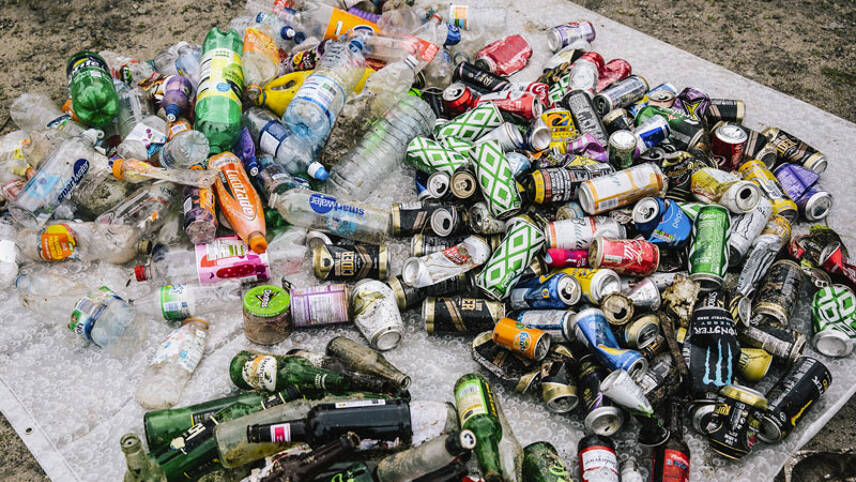Register for free and continue reading
Join our growing army of changemakers and get unlimited access to our premium content

Image: Ian Lean for Surfers Against Sewage
This list is produced every summer following mass clean-ups across the UK’s beaches, rivers, cities and countryside. This year, litter collected at 499 cleans is included in the data.
Once cleans are complete, volunteers look through the items collected to assess which companies are producing the most commonly-littered pieces of packaging. All materials are counted but plastics account for the majority.
The Coca-Cola Company has topped the list in every edition to date, and continues to do so this time around. Branding from the Company and its subsidiaries was identifiable on 17% of the items collected.
Surfers Against Sewage also named another 11 businesses with the UK’s most commonly littered packaging. Rounding out the top three are McDonald’s and PepsiCo.
The other ‘Dirty Dozen’ companies for 2023 are Mondelez International (owner of brands including Oreo and Cadbury); Anheuser-Busch InBev (the world’s largest brewer); Tesco; Haribo; Nestle; Mars; Heineken Holding; Carlsberg Group and Red Bull.
Collectively, these 12 companies accounted for 70% of all branded litter collected during the cleans. This is up from 52% in 2021.
Surfers Against Sewage’s campaigns manager Izzy Ross said the results were “shocking, but sadly not surprising”.
The group is calling on the UK Government to do more to hold these businesses accountable. It wants them to not only invest in bins and recyclable packaging, to precent litter, but to shift to business models that produce less waste in the first instance.
On recycling, the UK Government promised a UK-wide Deposit Return Scheme (DRS) for drinks packaging along with broader extended producer responsibility (EPR) requirements for consumer goods packaging back in 2018. The Resources and Waste Strategy has been much delayed during Covid.
A DRS for England and Wales has now been pushed back to 2025. Scotland has also delayed its own scheme, partly over inconsistencies with the proposed scheme for the rest of the UK, including whether glass containers would come with a mandatory deposit.
Fishing for plastic
While the Surfers Against Sewage team were not surprised about packaging-related findings, one unexpected finding was the increased prevalence of plastic litter originating from the fishing industry.
More than one in ten pieces of litter collected were fishing gear. Line, nets and ropes were more common on beaches but were also found in-land. On beaches, they accounted for 16% of the waste collected, up from 11% in 2022.


Technically it isn’t the producer at fault but the lazy arsed human who drops it.
However, if these companies were forced to pay for clean ups, sponsor waste bins, fund council waste teams etc then maybe that would go some way to alleviating the problem and taking the burden of cleaning up litter from the few volunteers.
I doubt a Deposit Return Scheme will help as people seem quite happy to leave £100 tents, sleeping bags and other camping equipment littering our hills and glens so will 20p for a can encourage them to return it? Not a bloody hope!